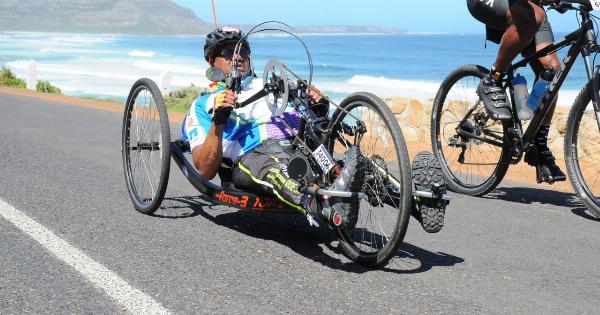Cycling is one of the most popular types of exercise in the world. It is a great way to get outdoors, stay fit, and explore beautiful landscapes. However, cyclists are often concerned about the effects of cycling on their sexual health.
This is a valid concern as there is evidence to suggest that cycling can indeed affect sexual health. In this article, we will explore how cycling affects sexual health and what you can do to minimize its negative effects.
Cycling and Erectile dysfunction
Erectile dysfunction is a condition where a man is unable to achieve or maintain an erection that is sufficient for sexual activity. There is evidence to suggest that cycling can contribute to this condition.
This is because cycling can cause pressure on the perineum, which is the area between the anus and the scrotum. This pressure can damage the nerves and blood vessels that are responsible for an erection. Over time, this damage can lead to erectile dysfunction.
It is important to note that this condition is more common in professional cyclists who spend long hours on the bike than in recreational cyclists. However, it is still a concern for all cyclists.
Cycling and Low sperm count
Low sperm count is another concern for male cyclists. This is because cycling can cause the testes to heat up, which can reduce sperm production. In addition, the pressure on the perineum can also affect sperm production.
Over time, this can lead to a low sperm count, which can make it difficult to conceive a child.
Cycling and Vulva pain
Vulva pain is a common complaint among female cyclists. This is because cycling places pressure on the vulva, which can cause discomfort and even pain. This can be a result of poorly fitting cycling shorts or a poorly fitting bike.
In addition, the constant rubbing against the vulva can cause skin irritation and inflammation. Over time, this can lead to chronic pain in the vulva region.
Cycling and Urinary tract infections
Urinary tract infections (UTIs) are another concern for female cyclists. This is because cycling can cause friction in the vaginal area, which can cause bacteria to enter the urethra. This can lead to a UTI, which can be painful and uncomfortable.
How to minimize the negative effects of cycling on sexual health
While cycling can have negative effects on sexual health, there are steps you can take to minimize these effects. Here are some tips:.
1. Get a good bike fit
A proper bike fit is essential for minimizing the pressure on the perineum. A good bike fit will ensure that your weight is distributed evenly over the bike.
This will reduce the pressure on the perineum and minimize the risk of erectile dysfunction and low sperm count.
2. Wear the right gear
Wearing the right gear is also important for minimizing the pressure on the perineum. Invest in a good pair of padded cycling shorts and make sure they fit properly. This will provide extra cushioning and support for the perineum.
3. Take breaks
It is important to take regular breaks while cycling. This will give your body a chance to rest and recover. It will also reduce the pressure on the perineum and minimize the risk of erectile dysfunction and low sperm count.
4. Change positions
Changing positions while cycling is another way to reduce the pressure on the perineum. Try standing up on the pedals or shifting your weight from side to side. This will help to distribute your weight evenly and minimize the pressure on the perineum.
5. Use a different type of bike
If you are experiencing discomfort or pain while cycling, consider switching to a different type of bike. A recumbent bike or a hybrid bike may be more comfortable for you.
Conclusion
Cycling can have negative effects on sexual health, but there are steps you can take to minimize these effects.
By getting a good bike fit, wearing the right gear, taking breaks, changing positions, and using a different type of bike, you can reduce the pressure on the perineum and minimize the risk of erectile dysfunction, low sperm count, vulva pain, and UTIs. With these precautions, you can continue to enjoy the many benefits of cycling without worrying about its negative effects on sexual health.































